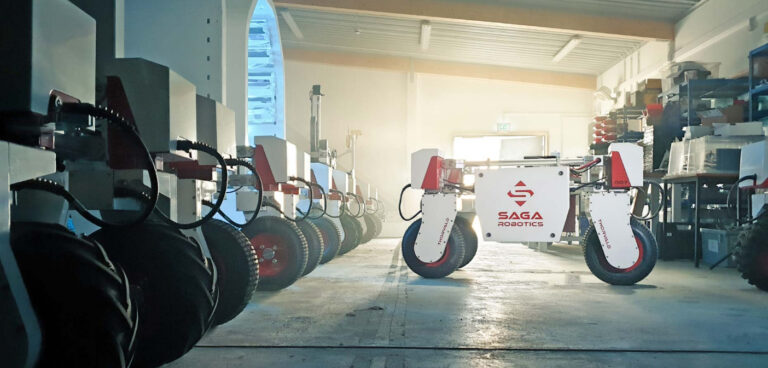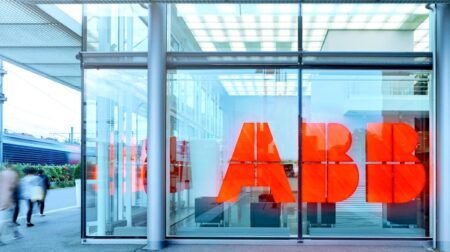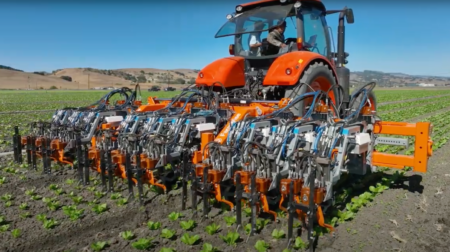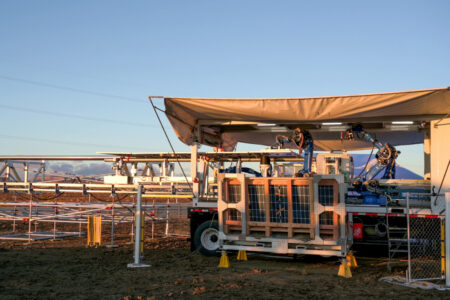The future of UK farming and food production has been boosted after Innovate UK announced funding of £2.5m for what is widely considered to be the world’s first robotic farm.
The ‘Robot Highways’ project aims to ensure industry sustainability by addressing labour shortages, the need for global food production and reducing the environmental impact of the farming sector.
Agri-food is the largest manufacturing sector in the UK – twice the scale of automotive and aerospace combined – supporting a food chain that generates a gross value added (GVA) of £113bn, with 3.9m employees.
The consortium responsible for delivering the project consists of Saga Robotics, a developer of robotics and autonomous systems (RAS) technology for the soft fruit sector; the University of Lincoln, University of Reading, Manufacturing Technology Centre (MTC), Berry Gardens Growers, BT, and Clock House Farm, which specialises in soft and stone fruit growing.
Together, these organisations aim to create the largest known global demonstration of robotics and autonomous systems technology that fuse multiple application technologies across a single farming system. The project will be hosted at Clock House Farm in Kent.
With an aim to be delivered by 2025 across the UK, a fleet of robots powered by renewable energy will perform a multitude of on-farm functions as one operation. The trial will set out to deliver a vision for the future of soft-fruit growing, where robots will assist growers by carrying out essential, energy-intensive physical farm processes such as picking and packing fruit and treating crops to reduce pests and diseases.
The project is key to industry sustainability by reducing sector reliance on seasonal labour, estimating a 40% reduction in the labour required.
UK farming minister, Victoria Prentis, said: “It’s great to see investment in these outstanding ideas, which will help us tackle the faming industry’s greatest challenges, from achieving net zero emissions to investing in sustainable alternative protein for animal feed. Farming has never before been at the centre of such exciting and forward-looking innovations.”
‘Robot Highways’ will also provide solutions for moving the sector towards a carbon zero future, with an estimated 20% reduction in fruit waste, 90% reduction in fungicide use, a significant reduction in use of fossil fuel across all farm logistic operations and a 15% increase in farm productivity.
Artificial intelligence and machine learning technologies will also be harnessed, and improvements made to telecommunications infrastructure in rural settings.
Professor Pal From, CEO of Saga Robotics, said: “We are extremely proud and excited to have been awarded this project and we are convinced that it will transform the soft fruit industry in the UK. This project will deploy robots in the agricultural sector at a scale never seen before, providing an innovative approach to all the major labour-intensive operations within the industry.”
The University of Lincoln – through its Lincoln Institute for Agri-food Technology – will lead the academic contribution to robotic development and coordinating the fleet control system. The University of Reading’s School of Agriculture, Policy and Development will evaluate the economic benefits of the new robotic agricultural technologies, and bring growers, policy-makers and tech developers together to create suitable robotic tech for agricultural use.
BT will be responsible for both network provision and delivery of data platforms needed to support the transformation of Clock House Farm into a technology demonstration site. MTC will provide expertise in simulation, automation and process optimisation to ensure that the facility works as efficiently as possible and that any automation used is in the right area and delivering value.
Berry Gardens is also part of two additional research projects awarded government investment through Innovate UK. The first is a project that will combine existing technologies with novel plant science, computer vision and a new algorithm to assess the external and internal quality attributes of blackberries and apply imaging to distinguish ripeness, alongside displaying processed spectral image using augmented reality glasses in real-time.
The second is a project that aims to integrate nutrient demand models and AI-based sensors with precision-dosing rigs to improve resource use and productivity, and reduce waste and emissions in commercial raspberry production.
Harriet Duncalfe, chairman of Berry Gardens’ Grower Research Advisory Panel, said: “Our ongoing funding of research into robotics is essential to ensure the industry continues to grow and develop to meet consumer demand for good-quality soft fruit, grown sustainably and efficiently. Not only could robotics help growers carry out essential work more efficiently, it will also help reduce our reliance on seasonal labour, all whilst moving the sector towards a carbon-zero future.”








